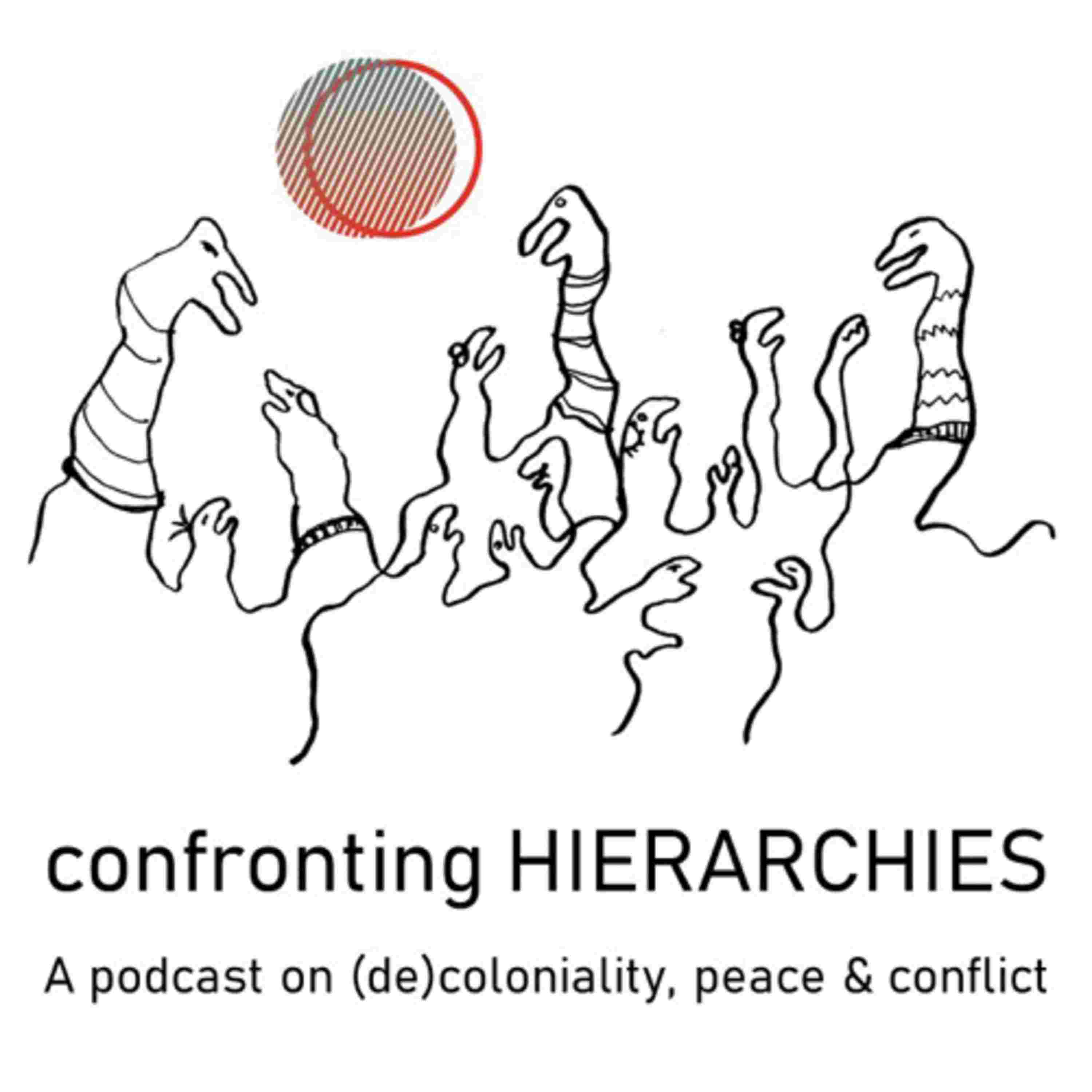

In Episode 2, we discuss the "big buzzwords" of postcolonial theory and decolonial thought: what they mean, why and when to use them, and the plurality and diversity within their origins. The guests for this episode were Layla Brown & Filiberto Penados.
Bios.: Layla D. Brown is an Assistant Professor of Cultural Anthropology & Africana Studies and affiliate faculty in Women’s, Gender, and Sexuality Studies. Layla’s research focuses on Pan-African, Socialist, and Feminist social movements in Venezuela, the US, and the broader African Diaspora. She is working on completing her first book manuscript entitled An Anthropology of Pan-Africanism in the 21st Century, an ethnographic exploration of the rise of Pan-African/Feminist activism and social movements in Venezuela and the United States. Layla is also the co-host of a new podcast, “Life. Study. Revolution.” with Dr. Charisse Burden-Stelly.
Dr. Filiberto Penados is a Co-Founder of CELA Belize and a Maya scholar whose work focuses on indigenous education and development. Dr. Penados has a long history of engaged scholarship with indigenous and local communities in Belize and a wealth of experience leveraging this involvement to create unique learning experiences.
Dr Penados has served as a professor at the University of Manitoba, University of Toronto, Galen University, and the University of Belize. He teaches courses on Sustainable Development, Natural Resource Management, and Education, and related fields. He also loves to play the guitar.
Links:
Postcolonialism as desire, anticolonial as struggle, decolonial as just fancy words – Silvia Rivera Cusicanqui: CUSICANQUI, Silvia Rivera – GLOBAL SOCIAL THEORY
Decoloniality: coloniality and modernity as two sides of the same coin: See e.g. Walter Mignolo: MIGNOLO, Walter – GLOBAL SOCIAL THEORY
Filliberto Penado’s interview on Belizean TV: Belize National Indigenous Council – Maya in South Belize – YouTube
Juliet Hooker on racism and indigeneity: Juliet Hooker: “The closer you are to being indigenous, to being black, the lower you are in the racial hierarchy” – Nicaraguan Perspectives (nicaperspectives.org)
Lebohang Pheko on Feminist Economics: Lebohang Pheko: Feminist economics is everything. The revolution is now! | TED Talk
An interview with Robin D.G. Kelley on universities: The Meaning of African American Studies | The New Yorker
Fernando Sarango on pluriversities: Prof. Dr. Fernando Sarango Macas — Freiburg Institute for Advanced Studies – FRIAS (uni-freiburg.de)
Credits
The episode was moderated by Abdul Karim Ibrahim from the institute of African Studies, University of Ghana.
We also want to thank our team behind the scenes for the collaboration and contributions. We want to thank Abdul Karim Ibrahim for the introduction to this episode, Aurelio Cossar for the illustration of the cover and Harry and Tom Parfitt for the Jingle. It was inspired by Sheriff Ghale’s piece called “Nni Yeli”.
For the preparation and recording of the podcast, we want to thank Rebecca Schmidt, Kristine Dünkelsbühler and Miriam Bartelmann. Furthermore we want to express our gratitude for the assistance on this podcast to Adrién Francoise and Johanna Unewisse.
The equipment was provided by the media center of the University library in Freiburg, who also postproduced the podcast – thank you for the help and collaboration.